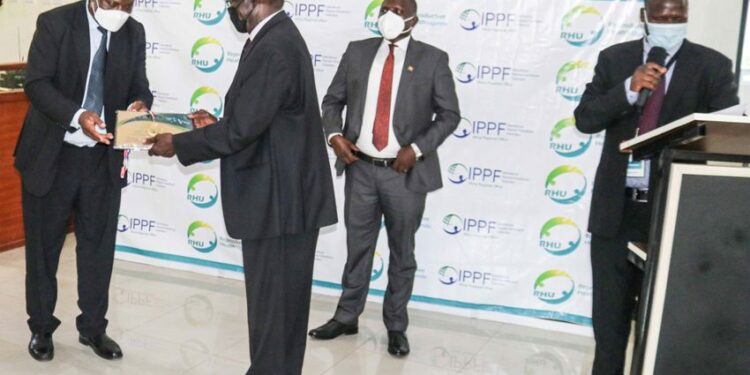By Alobo Rita
The Reproductive Health Uganda (RHU) wants the government to review its policies on access to family planning, sexual reproductive health, and rights (SRHR), and Family Planning (FP) to Ugandans.
Among the policies in question are the School health policy, National sexuality education framework, National Family Planning Advocacy guidelines, and National Adolescent Health strategy.
while presiding over RHU’s 65th annual general meeting in Lira, Nathan T.Kipande, RHU National Executive Committee (NEC) Chairperson notes that how these SRHR related policies were drafted and some ratified, doesn’t allow Ugandans to claim and enjoy their SRHR / FP.
He says that young people face challenges, especially girls in this COVID 19 pandemic who got pregnant, may never go back to school, and cannot access emergency contraceptive pills in Uganda.
Jackson Chekweko, RHU Executive Director believes that the greatest challenge young people face in Uganda total is child labor, but the worst child labor is for a teenage girl of 14 years to get pregnant and give birth to a fellow child.
“to avoid the extreme of child labor in Uganda, to prevent teenage girls from getting pregnant, the laws, guidelines, and policies should be amended to allow for the government to deliver free emergency pregnancy pills to teenagers alongside condoms at all health centers in Uganda,” Chekweko posits.
According to Eng. Robert James Ajal, Lango Cultural Foundation, 23, 000 girls in the Lango sub-region of northern Uganda got pregnant during the COVID 19 pandemic lockdown. He says the situation wouldn’t be at this if alternative methods of preventing teenage pregnancy were legally available.
Amidst this uncertainty, Gorreti Nakyanzi, and Daniel Ogwang, youth representatives from Luweero and Lira, say that teenage pregnancies are increasing with some getting infected with HIV too.
“Already, we know from Ministry of Health figures that by the age of 25 percent of Ugandan teenage girls have become pregnant. Around 49 percent marry before they turn 18. We don’t have the latest figures for the previous year but anecdotal data is already showing an increase. Young people don’t have information,” Nakyanzi disclosed.
She says that by the time of the initial lockdown last year, they were still pushing for increased access to health information by young people noting that the Adolescent Health Policy that was still being discussed by the Ministry of Health has since stalled. Also, the National Sexuality Framework that had just been launched didn’t see the light of day as sections of it were opposed by religious leaders.
Ogwang now urges the government to finalize all pending policies to enable young people to freely access information. He also calls for the reopening of youth-friendly spaces where young people can comfortably access sexual and Reproductive Health Information.
However, by the time of the lockdown last year, most of these youth-friendly spaces especially youth corners in public hospitals were being phased out because of non-use by the target audience.
Dr. Charles Olaro, Director of Health Services at the Ministry of Health, who represented Hon. Ruth Aceng as the guest of Honor says he will voice the concerns from members to other authorities for consideration.
Do you have a story in your community or an opinion to share with us: Email us at editorial@watchdoguganda.com













